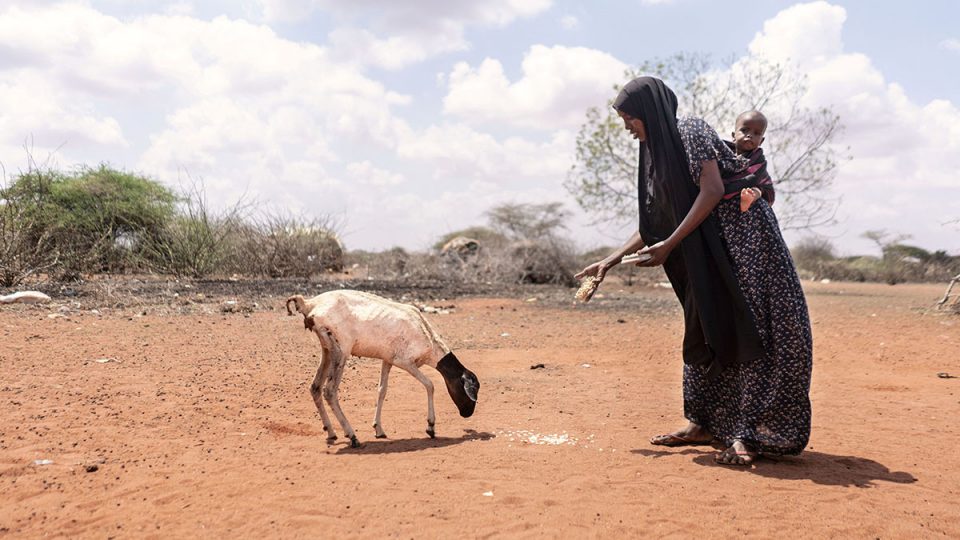By Nicole Watkins, Red Cross Volunteer
It has been three months since the conflict in Ukraine began and the wider ramifications are being felt around the globe. 4,000 miles away in the Horn of Africa, countries are facing a food insecurity catastrophe due to the disruption of deliveries of crucial supplies.
Before the conflict in Europe, nearly one-third East Africa’s cereal supply came from Russia and Ukraine. Conflict has upended global supply, leaving those in the Horn of Africa without a critical supplier of food. The disruption of wheat and fertilizer supplies is compounding an already devastating situation. Ethiopia, Somalia and Kenya grow closer to a fourth season of drought – expected to be the worst in 40 years – and face a food insecurity disaster with their supplies dwindling and wheat and fertilizer prices increasing.
With the conflict and devastating humanitarian crisis in Ukraine dominating the headlines, there is concern that the ongoing crisis unfolding in the Horn of Africa will be forgotten. Amid these complex challenges, the Red Cross is committed to helping those in need with urgent humanitarian assistance.
Millions Need Help
As climate change-induced disasters devastate agriculture, grasslands and water resources, the region has struggled to make up the difference. Climate change, the impacts of COVID-19, locust invasions and conflict in the region have further exacerbated an already dire situation. Now, more than 14 million people need urgent food aid. That number is expected to rise to more than 20 million as conditions worsen.
Red Cross on the Ground
International teams are working in concert with local Red Cross societies to deliver critical goods, cash assistance and implement preparedness efforts to support the most vulnerable, including more than five million children.
Since diminished access to food and water sources fosters a population increasingly vulnerable to hygiene, water and sanitation plight, Red Cross teams are focusing their manpower on reinforcing community water points and providing hygiene and sanitation services to address complications from already jeopardized water sources.
Red Cross teams in Ethiopia, Somalia and Kenya are bridging the financial gap with cash assistance for vulnerable families who are impacted by the global price hike. The American Red Cross is pitching in to do its part. Thus far, the American Red Cross has contributed $380,000 to the Somali Red Cross to support cash assistance and $355,000 to the Kenyan Red Cross in support of clean water. These efforts include water sanitation, hygiene through water trucking and rehabilitation of community water points and boreholes. In addition to immediate aid, Red Cross teams are also developing long-term plans, focusing their efforts on maintaining mobile health clinics and targeting hard-to-reach areas with malnutrition screening, referrals and provision of nutrition supplements.
Updating pre-existing solutions is one way that the Red Cross and Red Crescent teams work to reduce vulnerability. With an additional pledge of $780,000 to the region, the American Red Cross will continue to aid in projects like implementing holistic livelihood interventions to achieve long-term climate-smart livelihoods and food security across the Horn of Africa.
The American Red Cross

